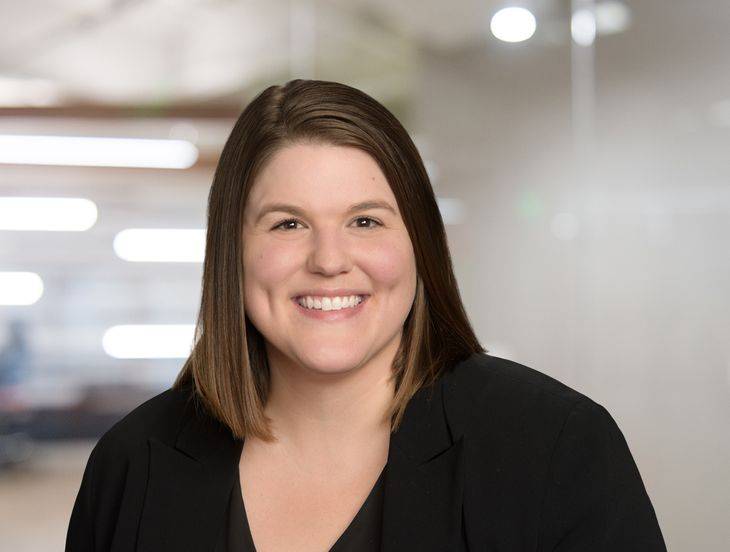Agency Judges’ Power at Risk Again: Family Farm Fights Back After DOL Demands $500K for Alleged H-2A Program Violations
Insights
4.16.25
A federal appeals court will soon decide whether the Department of Labor (DOL) may impose financial penalties on employers for alleged violations of the H-2A temporary visa program. While a lower court rejected a family-owned farm’s constitutional challenge to the DOL’s use of administrative law judges (ALJs) to impose such penalties, a subsequent Supreme Court ruling could sway the 3rd Circuit Court of Appeals to side with the farm instead. We’ll explain everything you need to know about Sun Valley Orchards, LLC v. U.S. Department of Labor, and how the case’s outcome could impact employers in the agricultural industry and beyond.
Overview of the H-2A Program
The Immigration and Nationality Act authorizes the H-2A visa program, which allows U.S. agricultural employers who anticipate a shortage of farmworkers to bring foreign nationals to the country to fill temporary agricultural jobs. Employers must meet specific regulatory requirements in order to participate in the program.
While the employer ultimately must petition for H-2A visas from the U.S. Citizenship and Immigration Services (USCIS), it must first obtain an H-2A temporary labor certification from the DOL. When applying for that certification, the employer must submit H-2A job orders (Form ETA-790/790A), which list the job’s minimum benefits, wages, and working conditions.
The DOL enforces compliance with the terms and conditions of employment of the H-2A program – including by investigating potential violations and initiating administrative proceedings, as well as recovering back wages, blocking employers from future participation in the program, and imposing civil penalties.
How Did a Family-Owned Farm Get Hit with Over $500K in DOL Penalties?
Sun Valley Orchards, LLC, is a family-owned farm in New Jersey that grows vegetables, including peppers, squash, cucumbers, and asparagus. The farm utilized the H-2A program for the first time in 2015 and hired foreign visa workers to harvest the crops for the growing season (April through October) – but many of the H-2A workers left the farm in May after a dispute with the owners.
That dispute and the workers’ early departure led to a DOL investigation and determination that Sun Valley Orchards had violated various aspects of the H-2A program. The agency assessed $369,703 in back wages and $212,250 in penalties.
|
The DOL Assessment. According to a court document filed by Sun Valley Orchards:
|
After Sun Valley requested a hearing with an administrative law judge (ALJ), the ALJ issued a decision that mostly aligned with the DOL’s determination, requiring the farm to pay over $500K to the agency. The DOL’s Administrative Review Board affirmed the ALJ’s decision on appeal.
Farm Claims DOL’s Use of ALJs to Impose Financial Penalties is Unconstitutional
Sun Valley Orchards sued the Labor Department in federal court in 2021, claiming, among other things, that the DOL’s attempt to recover financial penalties for alleged H-2A violations entitles the farm to a jury trial before an Article III court. These courts are part of the judicial branch, whereas ALJs are considered part of the executive branch and do not go through the same appointment process as Article III judges.
Legal Background
- The Seventh Amendment guarantees the right to a jury trial in suits at common law – generally meaning all civil suits except for those of equity or admiralty jurisdiction – so long as the value in controversy exceeds $20.
- However, the Supreme Court has long recognized a “public rights” exception that permits certain cases involving governmental prerogatives to be resolved outside of an Article III court without a jury.
- SCOTUS ruled last year that when the Securities and Exchange Commission seeks civil penalties for securities fraud, the defendant is entitled to a jury trial. In SEC v. Jarkesy, the Court held that the Seventh Amendment applied because the SEC’s antifraud provisions replicate common law fraud, and the action did not fall within any of the distinctive areas involving public rights.
| Click here for our previous coverage of the Jarkesy decision and how it could weaken the National Labor Relation Board’s attempts to impose financial penalties on employers. |
Lower Court’s Ruling
A federal district court in New Jersey sided with the Labor Department, holding that the “public-rights doctrine applied to the DOL’s case against Sun Valley for its H-2A violations because the H-2A involves immigration, which is a matter that falls within that doctrine.” However, the 2023 decision was issued prior to the Supreme Court’s ruling in Jarkesy.
Case Now Pending Before the 3rd Circuit Court of Appeals
A 3rd Circuit three-judge panel appeared torn over how to draw the line post-Jarkesy between public rights permitting the use of ALJs versus non-public rights requiring Article III jurisdiction. The judges frequently interjected with questions for each of the parties’ counsel but ultimately seemed to lean toward viewing this case as falling outside of the public rights exception.
- Employer’s Argument. Sun Valley’s counsel argued that the DOL’s use of ALJs to impose financial penalties on an employer was unconstitutional, and that Sun Valley was entitled to a jury trial before an Article III court because the alleged H-2A violations do not fall under the “public rights” exception. Relying on Jarkesy, the farm’s attorney said that while there’s no question that many immigration matters implicate public rights (such as when the remedy is to exclude someone from the country or to debar an employer from future participation in a visa program) – the Sun Valley case was fundamentally a labor dispute involving private contractual rights.
- DOL’s Argument. The federal government argued that while this case involves a labor dispute, it is fundamentally an immigration case – and therefore subject to the public rights exception – because the terms and conditions Sun Valley allegedly violated not only the workers’ rights but also the H-2A job orders that allowed those workers to enter the U.S.
Impact on Employers in the Agriculture Industry and Beyond
If the appeals court rules in favor of Sun Valley Orchards, agricultural employers will gain a new tool to fight back against monetary penalties assessed by the DOL for H-2A program violations. Any attempts by the agency to recover such penalties would entitle the employer to a jury trial in federal court – at a time when Article III judges have more power than ever before to override an agency’s interpretation of the law, thanks to the Supreme Court’s Loper Bright decision last year.
| More on Loper Bright. As we predicted, this landmark decision has already helped many agricultural employers by enabling a federal judge to block the DOL’s Farmworker Protection Rule in 17 states. |
Further, a win for agricultural employers could benefit employers across all industries as it could potentially influence other courts to curb ALJ authority in similar challenges.
Conclusion
We will provide updates as more information becomes available, so make sure you are subscribed to Fisher Phillips’ Insight System to receive updates directly to your inbox. If you have any questions, contact your Fisher Phillips attorney, the authors of this Insight, or any member of our Agriculture Team.
Related People
-
- Rebecca Hause-Schultz
- Partner
-
- Marty Heller
- Partner
-
- Joshua H. Viau
- Co-Regional Managing Partner


